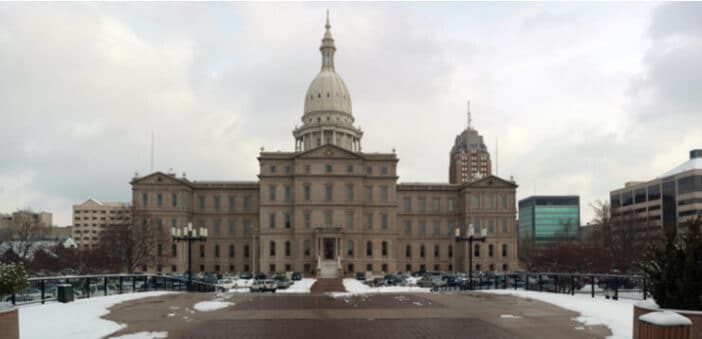A piece of legislation aiming to correct an erroneous omission in the 2019 Michigan online casino gambling law by allowing interstate online poker cleared the House Regulatory Reform Committee on Tuesday.
The bill, SB 991, would allow upcoming Michigan-sanctioned online poker sites to pool their players in Michigan with their players in another state where the platform also offers online poker, pending all regulatory approvals. The new law would allow the Michigan Gaming Control Board to enter into agreements for interstate online poker. It would be up to the board, as the bill wouldn’t require the MGCB to do so or provide any timeline for reaching such an agreement with another jurisdiction.
Currently, only the online poker network from Caesars/888, operational in Nevada, New Jersey, and Delaware, shares online liquidity. Caesars is Nevada’s only iPoker operator, while New Jersey has three.
Michigan’s SB 991 is supported by both the state gaming control board and Flutter Entertainment, the parent of PokerStars Michigan. PokerStars is live in New Jersey and is currently the only online poker site live in Pennsylvania. It’s likely to be the first poker platform in Michigan, but it’s unclear when iPoker will begin.
Online gambling launch coming in mere weeks
It’s looking like late December is when the first Michigan online sportsbooks and casinos launch over the internet and on smartphones. It’s unclear if online poker will begin on the first day the other online options become available. It took months for iPoker to join the online gambling mix in Pennsylvania.
SB 991, which cleared a full Senate vote nearly unanimously in early October, could find its way to Gov. Gretchen Whitmer’s desk and receive a signature by the end of the year. The law passing doesn’t mean PokerStars or any other online poker operator could start pooling players with another U.S. state right away. It would likely take some time for the nuts and bolts of that arrangement to be hashed out. Pennsylvania still hasn’t allowed PokerStars to pool players with its sister site in New Jersey.
Michigan may move much more quickly than Pennsylvania, but interstate online poker won’t be available right away. There were no details given about a timeline for actually having active interstate online poker during Tuesday’s committee hearing on the legislation.
One wild card in the whole process of allowing multi-jurisdictional online poker is the U.S. Department of Justice. Under the Trump DOJ, the online gambling industry had concerns about potential enforcement of the 1961 Wire Act, a law that was re-interpreted during the Obama years in a way favorable to online gambling firms. With a Biden Administration set to take office in January, a federal crackdown on gambling industry activity taking place across state lines appears a non-concern. This could lead to Pennsylvania finally pursuing interstate online poker, which its 2017 gambling expansion law allowed.
Michigan state Sen. Curtis Hertel, sponsor of SB 991, said Tuesday that “the only way it [online poker] really works is if you have a robust” player pool. For Hertel, there is no point to online poker in Michigan if the platforms licensed by the state can’t share liquidity with their sister platforms elsewhere.
He’s right. Though the pandemic has been a big boost to online poker in New Jersey, growth for the game lags behind other forms of online gambling. Liquidity is the name of the game.
Hertel’s bill would not allow any Michigan online poker site to use a network that includes players located overseas. Sharing players internationally would still be prohibited for a regulated site.





